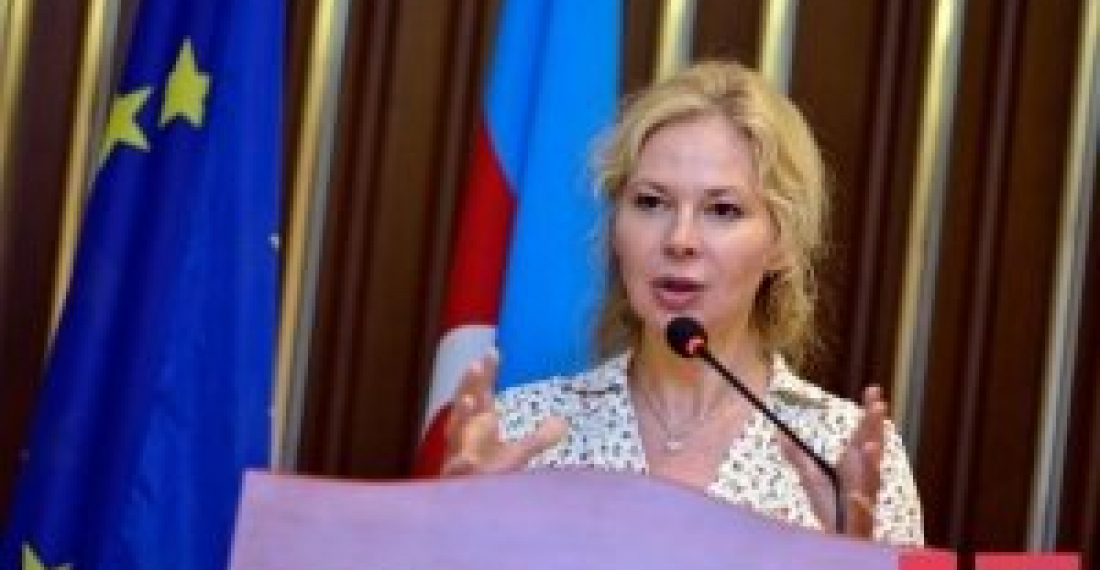The EU will launch four new grant projects for Azerbaijan next month, which are aimed at modernization of individual vocational centers, said Malena Mard, head of the EU Delegation to Azerbaijan.
She made the remarks at a ceremony held in Baku June 7 to launch a new EU project aimed at supporting vocational training in Azerbaijan, APA reported.
According to her, EU-Azerbaijan cooperation is of great importance for Brussels. She noted that the development of vocational education and training forms the basis of economic diversification and reforms being carried out in Azerbaijan in this sphere.
Mard said that the improvement of vocational training should be conducted in the right direction.
"The EU has great experience in this field. In vocational education there should be good teachers, quality infrastructure and instructors. In addition, correct content, curriculums and programs that meet the market requirements are needed," she added.
She stressed that vocational education should subsequently lead to an increase in employment.
"The new project is aimed at the development of vocational training in Azerbaijan," said Mard, pledging that the EU will continue to support reforms in Azerbaijan.
Meanwhile it has also been announced that the next round of talks on a new framework agreement between Azerbaijan and the European Union will be held in Baku on 13-14 June. Azerbaijani Deputy Foreign Minister Mahmud Mammad Guliev told journalists in Baku that the talks will focus on two blocks: political security and trade. The EU delegation will be led by Luc Devigne.
source; commonspace.eu with APA
photo Melania Mard, EU Head of Delegation in Baku.







